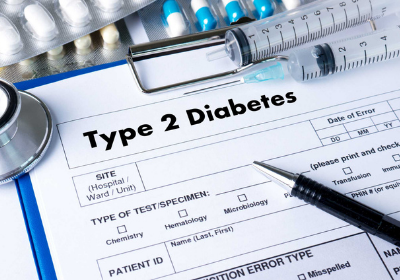
Diabetes means your body’s blood sugar levels are higher than normal. Diabetes happens when you have too much sugar (glucose) in your blood. This can happen if your pancreas does not make any insulin or it makes very little insulin, or both. Insulin is a hormone that helps the glucose get into your cells to give them energy. Pregnancy-related diabetes usually starts between the 24th and 28th week of pregnancy and can continue after pregnancy. Diabetes affects 1 out of every 10 pregnancies in the U.S., which is about 135,000 pregnancies each year.
Diabetes – A Chronic Illness
Diabetes and pregnancy go hand in hand. Diabetes is a chronic illness that occurs when your blood glucose levels are too high. Diabetes can be classified into two different types, type 1 diabetes and type 2 diabetes.
Type 1 Diabetes

Type one generally results from an autoimmune disorder or insulin-dependent deficiency of insulin. Individuals with type one cannot produce insulin, which is a hormone needed to convert sugar into energy within the cells of the body. The exact cause for this form of diabetes is unknown but it’s mostly hereditary and develops during childhood or teenage years. Treatment consists in using daily doses of insulin either through injections or inhalers, depending on the severity of the case [1].
Type 2 Diabetes

On the other hand, Type two results from a combination between decreased effectiveness of the insulin being produced by the pancreas or insulin resistance. As this form of diabetes is connected with excess body weight, it usually develops during adult years [2].
Diabetes means having high blood sugar (glucose) levels over time, even as early as 3 months before you become pregnant through pregnancy and after your baby is born. Diabetes that happens during pregnancy is called gestational diabetes. Diabetes during pregnancy increases the risk for miscarriage and birth defects. Type 1 diabetes also can pose special problems, especially if you’re newly diagnosed with diabetes before becoming pregnant. Women who have type 1 diabetes before they become pregnant have an increased chance of miscarriage or baby death at birth (also called perinatal death), according to the American Diabetes Association (ADA). The ADA urges women with type 1 diabetes who are thinking about getting pregnant to seek medical advice as soon as possible.
Problems for the Mother and Baby

Diabetes increases the chance of problems for you and your baby. Untreated or uncontrolled diabetes can cause birth defects, poor growth in the womb, a difficult delivery, and health problems for the infant after it is born, or a higher risk of death for both mother and infant. Diabetes also makes some infections more likely during pregnancy.
Gestational diabetes is high blood sugar that starts or is first recognized during pregnancy. It usually starts between 24 weeks and 28 weeks of pregnancy. Diabetes can cause serious problems for you and your unborn baby if it’s not controlled. Blood sugar levels are often checked by doctors to make sure they are within the right range throughout pregnancy. High blood sugar levels may be seen as an increased risk during screening tests carried out at booking (around 12 weeks) or between 20 weeks and 24 weeks. Blood sugar levels are often checked by doctors to make sure they are within the right range throughout pregnancy.
Which types of diabetes affect pregnancy?

You’re more likely to have gestational diabetes if you developed type 2 diabetes before becoming pregnant, or if you had a big increase in weight before becoming pregnant.
Insulin needs are likely to be higher during pregnancy. Diabetes is usually controlled with a daily injection of insulin. However, taking insulin during pregnancy may also cause problems for your unborn baby, so it’s usually only considered if other blood sugar-lowering treatment isn’t working. Diabetes is typically treated by giving you diabetes tablets.
How Diabetes Can Be Detected?

Diabetes can be detected through tests such as fasting plasma glucose test, oral glucose tolerance test and glycosylated hemoglobin levels. Diabetes is a very common disease in pregnancy and about 50 to 80 percent of all pregnant women suffer from gestational diabetes [3]. This form of diabetes generally affects women who were overweight before becoming pregnant. Diabetes can also affect those who have previously given birth to a baby that weighed over 9lbs. When left untreated, gestational diabetes may cause macrosomia (abnormal large size) and increased risk for cesarean delivery and injury to the fetus [4]. Treatment consists in using blood sugar-lowering medication, insulin or both [5]. Diabetes can also affect the baby’s health. Babies born to mothers with diabetes are more likely to be at risk for low glucose levels (hypoglycemia) while in the uterus and if their blood sugar is too high after birth (hyperglycemia). Low levels of glucose in the fetus may lead to respiratory distress syndrome, while high levels may cause excess body fat, increased risk for obesity and heart disease later on in life [6].
For women who have Diabetes during pregnancy, there are several changes that need to take place. During pregnancy your growing baby demands extra nutrients from you. Diabetes makes this harder because it raises your blood sugar, which reduces the amount of glucose available for you and your baby. Diabetes also causes changes in how your body uses insulin, making it difficult to keep blood sugar (glucose) levels within a normal range [7]. As diabetes affects the way your body functions, even if you do not feel any symptoms, you or your doctor may find high blood sugar during pregnancy through routine prenatal tests including screening for gestational diabetes. This is why it’s important to follow treatment (antihyperglycemic drugs), control sugar level and make healthy lifestyle choices like exercising regularly and eating well balanced meals to avoid complications during pregnancy. Watch out for potential warning signs that might appear without taking necessary precautions such as blurry vision or extreme thirst leading up to delivery. Diabetes in pregnancy can affect a pregnant woman and her unborn baby. Diabetes during pregnancy increases the chances of premature birth, stillbirth, babies who are abnormally large or small, cesarean delivery and birth defects [8].
The main goals in Diabetes treatment include: – reducing blood sugar levels to near normal range (A1c <7%) – preventing acute metabolic effects such as diabetic ketoacidosis – controlling insulin dose when indicated to keep blood sugar levels within targeted range,
– preventing end organ damage from Diabetes [9].
Diabetes and Pregnancy Medications

Diabetes affects the way you manage your pregnancy, so it’s important to understand how medications may be used. If you need medicine to maintain normal blood sugar levels, your doctor can help you optimize this treatment before pregnancy. Diabetes can be more difficult to manage during pregnancy. Your insulin requirements may change, and you’ll likely need to take other medications as well as adjust your diet, physical activity and blood sugar monitoring.
Maintain Healthy Lifestyle

It’s important for pregnant women with diabetes to have a healthy lifestyle. This includes eating a balanced diet — which is particularly important if you have gestational diabetes — not smoking, getting regular exercise and maintaining a healthy weight before pregnancy starts.
Normalizing blood glucose is very important when you have diabetes due to risk of hyperglycemia which may lead to development of complications that include cardiovascular diseases, neuropathy, nephropathy, retinopathy and ulcers in diabetic patients [10]. Diabetes management in pregnancy includes the use of insulin therapy in order to maintain blood glucose levels within normal range in order to avoid adverse fetal effects. Diabetes treatment during pregnancy is different from Diabetes management when not pregnant. Diabetes medication used in pregnancy may be the same as when not pregnant but usually are different because they are specifically designed for use during pregnancy [11]. Diabetes management also include diet regimen with focus on achieving normoglycemia state. Diabetes diet food list should include high amount of fiber, limited amount of simple sugars and salt intake, daily portioned controlled meal plan along with physical activity program that consists of regular exercise for 30 minutes at least 5 days a week [12].









































